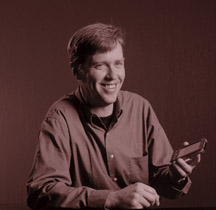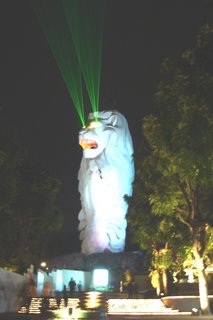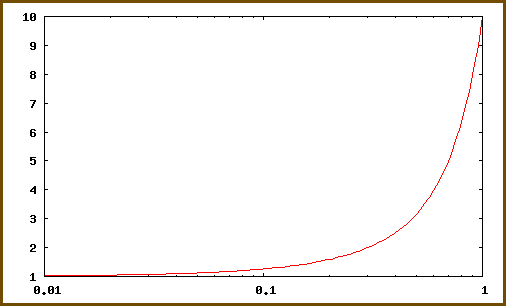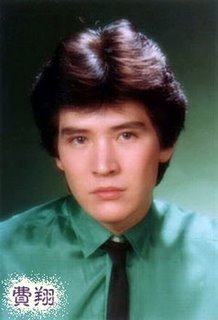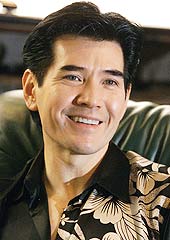 Feng Shui Science.
Feng Shui Science.Today, I was searching for an online edition of a newspaper when I came across this.
 Feng Shui
Feng Shui (
风水) literally means Wind Water, and is the art of ancient Chinese geomancy. I'm not an expert on it, so for those of you who are not familiar with Feng Shui here are two introductory articles on it.
Wikipedia on Feng ShuiWeeno on Feng ShuiThe Feng Shui practitioner in this newspaper article claims that Feng Shui is a
science.
No it isn't.Of course, at Fresh Brainz I
should spare you an exhaustive point-by-point rebuttal of his claims.
Except I won't.
Not by a long shot.
His quotes are in bold.
- You have to believe in feng shui, so it's not science. Wait a minute - you also have to believe in your doctor before you go and see him or her. You also have to believe in your lawyer before you appoint him to defend you in a case. Does that mean that the entire body of science is not valid if you don't believe your doctor's diagnosis? Of course not.Wow. Where to start.
First of all, doctors and lawyers are not scientists.
Next, science is not about belief. You can only have good confidence in your pet idea
after you have supporting evidence for it, not
before.
And I don't understand the fourth sentence at all. If the patient does not believe her doctor's diagnosis, that's her own opinion. Why would that invalidate the entire body of science?
Maybe he means that a single wrong diagnosis does not invalidate all of medical science.
Or that Feng Shui is valid even if you don't believe in it - which would contradict his first sentence.
- When people exhort that feng shui is not a science or is not scientific, the problem is that they may not understand what science is to begin with. The word "science" comes from Latin word scientia, which means knowledge. According to Wikipedia, science can be defined simply as "any systematic field of study or the knowledge gained from it".
Actually Wikipedia has
three definitions of science.
1. Any knowledge or trained skill, especially when
attained by verifiable means. (broadest sense)
2. Any systematic field of study or knowledge gained from such study.
3. System of acquiring knowledge based on empiricism, experimentation and
methodological naturalism, as well as to the organized body of knowledge humans have gained by such research. (restricted sense)
The words I highlighted in bold present obvious problems if you consider Feng Shui to be a science. Which is not mentioned in his selective quote.
- What about empirical evidence? This has been accumulating since the Tang Dynasty! Ancient classics contain not only descriptions of landform and the principles of Qi, but drawings of mountains and water as well.Wait a sec. Feng Shui proposes that features in the landscape, or the arrangement of furniture, can produce direct effects on the health and wealth of people. The empirical evidence required is not the landscape feature itself, but how these specific features affect people
. Is there a predictable and systematic effect on people?- Many people also point out that it is hard to accept feng shui as a science because it is not possible to measure Qi. Again, that is a flawed perception. Before Michael Faraday (1831-79), electricity and magnetic forces couldn't be measured. Does that mean that until Faraday's time, electricity and magnetic forces did not exist?People have known about the existence of electricity (lightning, static sparks) and magnets since antiquity. They can see the direct effects of both.
A streak across the sky. A scorched tree. Magnets stick to ferrous metals. Suspended magnets orientate north-south.
If you say Qi exists, show me its direct effects. Doesn't have to be precisely measurable.
As for Michael Faraday, he didn't discover the
existence of electricity and magnetic forces. You can read about his contributions to
electromagnetism and
electrochemistry here.
- The Chinese already had devices to measure Qi: the Solar and Lunar calendar, the Luo Pan and observation skills - using one's eyes to study the environment. Of course, nowadays some of us use Google Earth.If Qi is a type of energy, how does one use a calender (a record of time) to measure it?
The Luo Pan is a Feng Shui compass with a magnet at its heart. Is Qi magnetism? It can't be because we know so much about magnetism and how little it affects the human body (imagine the magnetic field strength of an MRI, for example).
If Qi can be seen using observation skills, why can't it be measured like anything else that can be seen directly?
- So who says that Qi is not measurable? It is simply that Qi is not measurable through the devices or means in which people assume are used to measure everything in this universe, from gases to insects. You don't use a stethoscope to measure blood pressure after all, right?Fine. When you measure Qi, what units do you use? How do you make multiple measurements to confirm that value of Qi? How do you determine the measurement error bar due to instrument/technique? If Qi fluctuates during the day is there a predictable pattern to it?
- It is the subtle elements that come with experience and application of knowledge in different cases. Even in the purest science, the Queen of Science, Mathematics, there is beauty and aesthetics!Mathematics is not science.
- Classical Feng Shui and the Chinese Five Arts were always recognised as metaphysical subjects by the Chinese - in other words, scientific practices with philosophical existential issues to it.
Metaphysics is not a branch of science. Here is the Wikipedia definition:
Metaphysics is the branch of philosophy concerned with explaining the nature of the world.
And no, philosophy is not a branch of science either.
- Now I am a feng shui practitioner and trainer. I'm not a philosopher and I'm certainly not an expert on metaphysics or sciences. My goal in this article has been to give you an inkling of how I have arrive at my conclusion of feng shui as a scientific practice.To claim that feng shui is a science, you need not be an expert, but must know enough about science to form a cogent argument for your assertion. This basic knowledge is absent here.
- For the longest time, people believed feng shui was about superstition, cultural beliefs (symbols and trinkets) or religion. Fewer and fewer people think that today. Just like thousands of years ago, people thought the world was flat.This is an inappropriate analogy. Mr. Yap stated that Feng Shui already existed in the Tang Dynasty (618-907AD) more than 1000 years ago. To return to the "classic" state of knowledge at that time is tantamount to
reverting to a flat earth view.
- People may not be convinced that feng shui is a science or scientific practice, but if they open their minds to the possibility, just like Galileo opened minds to the possibility that the earth was round, I have done my job!*sigh*
Galileo made many contributions to science, but the one thing he
did not do was demonstrate that the earth is round. People long before his time already knew that.
Say
Eratosthenes.
As for that bit about opening minds, I think a good way to do that is
to make fewer glaring mistakes in your article. Just a suggestion.
This is an article from a major newspaper.
Written by the CEO of a large Feng Shui school.
I... I think I'll go lie down for a while, my head hurts.
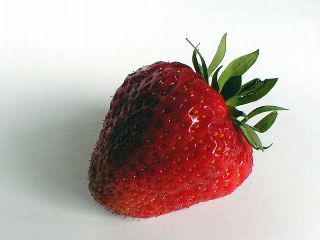 Weather and Romance.
Weather and Romance.


